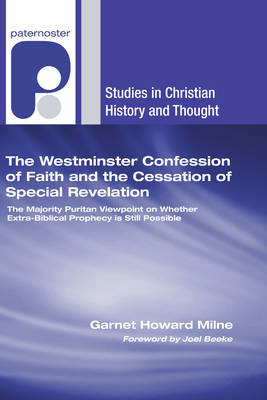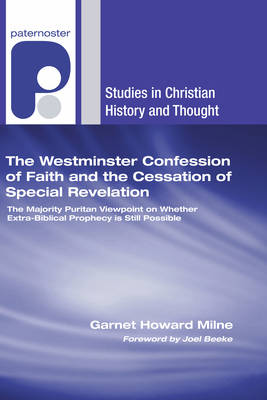
Bedankt voor het vertrouwen het afgelopen jaar! Om jou te bedanken bieden we GRATIS verzending (in België) aan op alles gedurende de hele maand januari.
- Afhalen na 1 uur in een winkel met voorraad
- Gratis thuislevering in België vanaf € 30
- Ruim aanbod met 7 miljoen producten
Bedankt voor het vertrouwen het afgelopen jaar! Om jou te bedanken bieden we GRATIS verzending (in België) aan op alles gedurende de hele maand januari.
- Afhalen na 1 uur in een winkel met voorraad
- Gratis thuislevering in België vanaf € 30
- Ruim aanbod met 7 miljoen producten
Zoeken
The Westminster Confession of Faith and the Cessation of Special Revelation
Garnet Howard Milne
€ 66,95
+ 133 punten
Uitvoering
Omschrijving
In the opening chapter of the Confession, the divines of Westminster included a clause that implied that there would no longer be any special immediate revelation from God. Means by which God had once communicated the divine will, such as dreams, visions, and the miraculous gifts of the Spirit, were said to be no longer available. However, many of the authors of the WCF accepted that "prophecy" continued in their time, and a number of them apparently believed that disclosure of God's will through dreams, visions, and angelic communication remained possible. How is the "cessationist" clause of WCF 1:1 to be read in the light of these claims? This book reconciles this paradox in a detailed study of the writings of the authors of the Westminster Confession of Faith.
Specificaties
Betrokkenen
- Auteur(s):
- Uitgeverij:
Inhoud
- Aantal bladzijden:
- 362
- Taal:
- Engels
- Reeks:
Eigenschappen
- Productcode (EAN):
- 9781556358050
- Verschijningsdatum:
- 1/12/2007
- Uitvoering:
- Paperback
- Formaat:
- Trade paperback (VS)
- Afmetingen:
- 155 mm x 227 mm
- Gewicht:
- 512 g

Alleen bij Standaard Boekhandel
+ 133 punten op je klantenkaart van Standaard Boekhandel
Beoordelingen
We publiceren alleen reviews die voldoen aan de voorwaarden voor reviews. Bekijk onze voorwaarden voor reviews.









